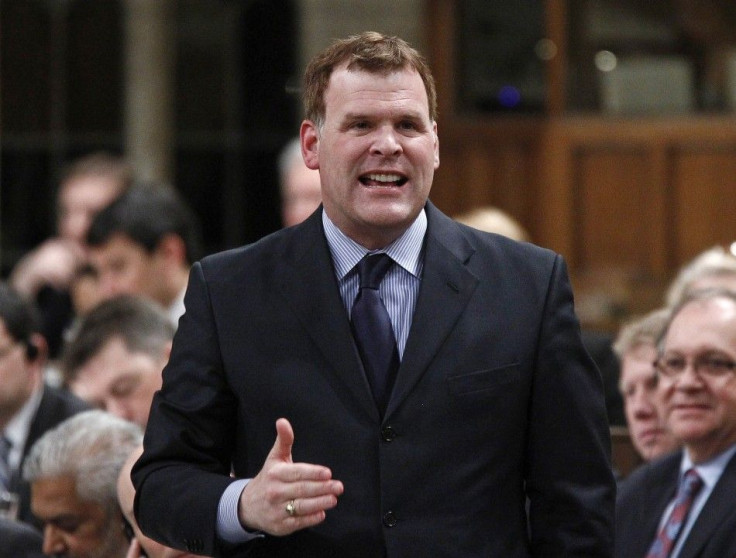The Commonwealth: A Nostalgic Remnant Of The British Empire, As Canada Criticizes Sri Lanka Over Human Rights Record

The Canadian government has blasted the selection of Sri Lanka as the host for a Commonwealth of Nations summit in November that will focus on human rights and security issues, citing Colombo’s own appalling record on human rights.
As such, Canadian Prime Minister Stephen Harper said he will boycott the summit.
John Baird, the Canadian foreign minister, said that Sri Lanka has violated cherished Commonwealth values in connection with the violence allegedly perpetrated by the government’s troops against Tamil minority separatists in the final weeks of the island nation’s devastating 26-year civil war that ended in 2009.
"Canada finds it appalling that the government in Colombo would be given the honor and the privilege and responsibility of hosting Commonwealth leaders,” Baird told BBC.
"The Commonwealth has fundamental values of freedom, democracy, human rights, the rule of law, good governance, and the government in Colombo has failed in all of those respects."
While at least 100,000 people died in the Sri Lankan conflict, Baird has accused the dominant Sinhalese army of massacring unknown thousands of Tamil civilians in the final stages of the war.
Baird further blasted the current rulers of Sri Lanka for failing to own up to their excesses since the war ended.
"We've seen no meaningful attempt at reconciliation with the Tamil population. If anything it's getting worse," he said, adding that Colombo has adopted an increasingly authoritarian stance.
"These are all fundamentally at odds with Commonwealth values, and we don't think Sri Lanka should be hosting the Commonwealth."
The United Nations Human Rights Council has also criticized Sri Lanka for human rights abuses related to the war and urged Colombo to institute a new and independent investigation into allegations of atrocities and mass murder.
Sri Lanka’s own probe into the war crimes issue in 2011 absolved the military of any wrongdoing.
Not surprisingly, Sri Lanka has now shrugged off Canada's volleys against its integrity and suitability as summit host.
Rodney Perera, a spokesman for Sri Lanka’s foreign ministry, told Agence France-Presse: "Canada can say anything, but the [other members] agree with the [Commonwealth] secretary-general that the summit can go ahead in Sri Lanka."
Similarly, Sri Lanka’s Mass Media and Information Minister Keheliya Rambukwella told the BBC: “We have dealt with this human rights issue, and we feel [the Canadians] are very biased and very unfair.”
It would appear that the Commonwealth is largely unmoved by Canada’s sharp criticisms.
“No member of government has indicated remotely that it wishes to change the venue," the Commonwealth’s Secretary-General Kamalesh Sharma told reporters in London.
Indeed, prominent Commonwealth member Australia will attend the summit in defiance of Canada, saying a boycott would be “counter-productive” and further isolate Sri Lanka.
"Apart from Canada, I can identify no other country in the … Commonwealth that would not be represented at Colombo," said foreign minister Bob Carr, according to Australian media.
”I'm not aware the Canadians have [even] made a final decision on that.”
However, according to Australia’s ABC news broadcaster, some voices Down Under support the Canadian stance.
"I think it's really courageous of the Canadians to stand up," said Greens leader Christine Milne.
"[Stephen Harper] has been quite forthright on this for a long time [and] has identified the fact that persecution and human rights abuse is ongoing, as has Human Rights Watch."
Former Australian Prime Minister Malcolm Fraser also endorsed the Canadian boycott.
In a broader context, the controversy over Sri Lanka reflects deep divisions within the Commonwealth itself, a nostalgic remnant of the British Empire that has somehow lasted into the 21st century.
The Commonwealth of Nations (once called the “British Commonwealth”) describes itself as a “voluntary association of 54 countries that support each other and work together towards shared goals in democracy and development.”
Only two current members, Mozambique and Rwanda, were never part of the British Empire.
Membership in the Commonwealth is a fluid concept – over the years some members, including Nigeria and Pakistan, have been suspended and re-admitted over a number of issues.
Queen Elizabeth II is honored as the “head of the Commonwealth,” while the Commonwealth Ministerial Action Group comprises a rotating group of nine foreign ministers who operate as a kind of governing body.
The Commonwealth as it is presently constituted represents some 2 billion people spread across six continents.
© Copyright IBTimes 2025. All rights reserved.




















